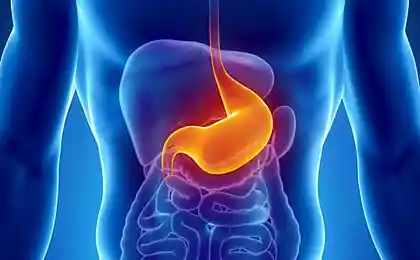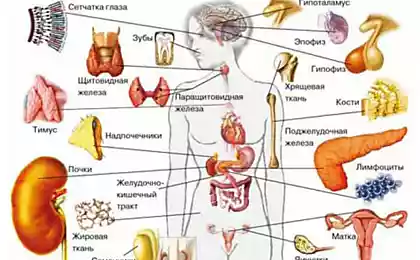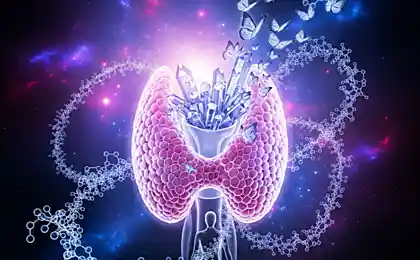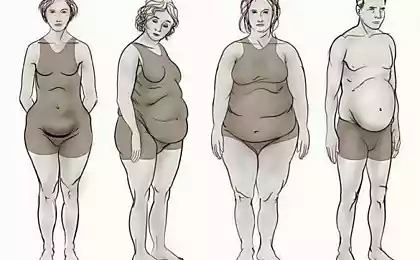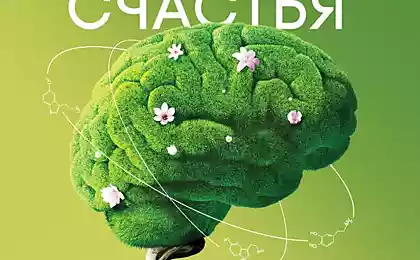479
The hormone cholecystokinin: Your fat friend
Today I will tell you about one intestinal hormone – cholecystokinin.
It stimulates the secretion fats and it plays a very important role in the saturation, this process can be easily influenced by power.
You will be surprised, but this hormone is also responsible for the sense of calm and sleep.
So, "make friends with fats — in the head".
Of course, I will tell you about how your diet can affect its level.
Thirty seven million eight hundred twenty six thousand thirty eight
Cholecystokinin (pancreozymin, CCK) is a peptide neurotransmitter that regulates a person's reaction in the physiological acts. Discovered cholecystokinin in the brain and the digestive system of animals and humans. CCK-a receptors stimulates contraction of the gallbladder, and CCK-B receptors are involved in the regulation of mental distress, fear and pain. It inhibits food-motivated, a violation of his production could also lead to improper working of the gallbladder and violations in the transfer of bile to the duodenum, and in General, disrupts the gastrointestinal tract.
The main informant of the brain about satiety For a long time scientists thought: how the brain learns in which "food" and "energy" is the status of the body? The first information was received by the Americans, James Gibbs, Robert young and Gerard Smith — all three studied cholecystokinin (SSK). It is the hormone that produces the duodenum, was already known — the scientists knew that it adjusts the work of the pancreas and reduce stomach. But it turned out that, if this hormone in pure form to give the rats the food, they eat significantly less.
Of course the idea that the hormones produced by the gastrointestinal tract during a meal, inform the brain about the amount of food and when it's time to stop.
Later, scientists have identified other substances, which are also synthesized in the intestine and inhibit the feeling of hunger, such as peptide YY, or PYY. They act on two sides: on the vagus nerve that connects the digestive tract and the brain, and directly on the hypothalamus, where they come from the blood. But the most important ingredient is, of course, cholecystokinin. It affects the eating behavior of a person causing a feeling of satiety and controlling appetite.
Cholecystokinin gastro — biliary — intestinal coordinator Stimulate the secretion of cholecystokinin fats and some amino acids. Cholecystokinin inhibits gastric emptying and reduces the secretion of hydrochloric acid. It also stimulates the pancreas and stimulates the secretion of digestive enzymes, the secretion of bile and reduce the gallbladder, relaxes the sphincter of the bile duct.
Cholecystokinin stimulates the vagus nerve, which causes a feeling of fullness. When nutrients from eaten lunch activate receptors in the small intestine, a variety of the cells lining the intestine, secretes the hormone cholecystokinin.
Cholecystokinin binds to receptors on the ends of the neurons nearby the vagus nerve, creating electrical impulses that are transmitted to the medulla oblongata, in the area called "the nucleus of the solitary road" (lat.:nucleus tractus solitarius) that causes reduction in hunger and reduces the amount of food eaten.
Cholecystokinin (CKK), and mental stability. Oddly enough, but cholecystokinin is also called the "hormone of panic." There is such a thing as the "unfounded panic", and so people with this problem the level of cholecystokinin significantly higher than normal. And suffer from this quite a considerable amount of the population – from 2 to 4 %, this disease occurs predominantly in young women twice as often than men. For the treatment of this disease use of specific drugs-tranquilizers, lowering hormone panic.
In 1984, Jens Rehfeld found that the injection of peptide, administered to healthy volunteers to evoke a distinct feeling of anxiety and panic (Rehfeld and Van Solinge, 1992). Central receptors HCC in high concentrations are located in regions of the CNS involved in the formation of anxiety. The biological action of this subtype of receptors is the modulation of a number of classical neurotransmitters (including endogenous opiates and dopamine) and the control of many Central functions. It is assumed that changes in activity holetsistograficheskie system (HCC system), whether it is hypersensitivity HCC receptors to intracellular responses associated with these receptors, and/or disturbances in the circulation HCK may be the neurobiological basis of panic attacks (Bradwejn et al., 1994; Shlik et al., 1997).
Chronic excess fatty foods and constantly elevated levels of cholecystokinin threat. For example, after sitting on fatty foods, rodents become more anxious, more cautious, chose to hide instead of explore new territory. It turned out that in the brain of these mice dramatically increased the level of the transcription factor CREB, which is responsible for activating genes that control the synthesis and release of corticosterone. Dopamine is known to work in neural circuits associated with a sense of fun, and corticosterone is a stress hormone.
Thus, according to the researchers, is the following: the body starts to experience more acute stress, and stress encourages more is getting dopamine the pleasure of eating. The fatter the food, the more dopamine will get the brain, but the more powerful the stress. If people suddenly decide to go straight to a low-fat diet, he will be in difficulty-the remnants of a stress hormone will be that is called, to put pressure on the head and dopamine levels, which would have the stress to fight, will fall sharply. Perhaps that is why many overweight people lose weight so hard.
Cholecystokinin and dopamine, as well as everything else nervous. In addition, cholecystokinin acts as a physiological regulator of behavioral acts. Has the properties of antidepressants. Relates to the emotions of fear and pathogenesis of schizophrenia. As nedostaet or excess cholecystokinin caused problems with behavior and mood.
The cholecystokinin level has a signicant impact on the mechanism of "rewards" and helps to be more stable in the formation of dependencies. High levels of cholecystokinin is associated with greater resistance to "dofaminove traps". Cholecystokinin also inhibits the excess secretion of dopamine. It is important that a mesolimbic dopamine-mediated error and methoctramine way synthesize cholecystokinin. Cholecystokinin is used in medicine as a diagnostic and therapeutic agent, in particular, is used for the relief of withdrawal symptoms when opioid addiction.
Amazing is the action of cholecystokinin on sleep. As you know, the hunger, including the hunger hormone ghrelin, causing arousal and reduce sleep. But cholecystokinin suppresses the secretion of ghrelin and improves sleep. On the other hand, cholecystokinin stimulates Aracinovo neurons, but this does not lead to sleep disturbance, but only to accelerate calorie burning. Cholecystokinin prolongs slow-wave sleep and improves sleep.
How to be friends with cholecystokinin As you know, everything is good in moderation. So use the power fat reasonably and taking into account their individual characteristics. Remember that it is not only the fat but also in its composition. Avoid omega-6 fats. Fat can protect with antioxidants in vegetables and herbs.Enough fat is a good mood, stress and pleasant satiety and satisfaction.Excess fat, especially high density (confectionaries) is too bad.
1. Low-fat food leads to significant deterioration of the saturation.
Representatives of the Harvard school of public health give examples of the many experiments that showed that people who switched to products with low fat, not get rid of excess weight and the result is healthier compared to those who preferred food of moderate or high fat content. Low fat foods do not cause the usual for us satiety. They are quickly digested in the stomach and intestines, so you will feel hunger shortly after a meal. In addition, your belief that "light" yogurt or cheese will not harm your body, can lead to constant overeating.
2. Stimulators of secretion of cholecystokinin are entering the small intestine from the stomach in the chyme composition of proteins, fats, especially with the presence of fatty acids with long chain, components choleretic herbs (alkaloids, protopine, sanguinarine, essential oils, etc.), acids (but not carbohydrates).
3. Consider the effect of cholecystokinin on the mood.
Quick post without fat and protein can significantly reduce anxiety and tendency to panic. Scientifically established that too fat refined food leads to the spread of the disease microflora in the digestive system. The experiments carried out on lab rodents found addiction of compulsive behavior, the constant feeling of anxiety and loss of memory from the amount of consumed fat.
4. Use the right fats (fatty acids long chain) to stimulate cholecystokinin.
Best stimulate the secretion of cholecystokinin fatty acids are long chain, 10-18 carbon fats (fatty acids with long chain 10-18), because they stimulate cholecystokinin that night off appetite. For example, it coconut oil, ghee, butter, animal fat.Fatty acids are long chain (LCFA) containing from 10 to 18 carbon atoms, can be saturated, monounsaturated and polyunsaturated.
Stearic acid is vosemnadtsatiletnie saturated fatty acid found mainly in the melted fat beef and mutton.
Oleic acid is vosemnadtsatiletnie monounsaturated fatty acid, the main component in olive oil.
Another monounsaturated fatty acid is palmitoleic acid with high antimicrobial properties. Found exclusively in animal fats.
5. More greens and vegetables.
Everything is green (where there is chlorophyll) and vegetables (fiber) potentiate significantly prolong the action of cholecystokinin. Studies show that thylakoid cell membranes of greens (any) stimulate cholecystokinin and efficient to suppress appetite. Thylakoid stimulates the secretion of the satiety hormones cholecystokinin and leptin, and lower insulin levels without changing glucose levels. Nutrient-rich greens such as Kale and spinach, contain so-called thylakoid, which, according to researchers from Lund University in Sweden, reduce the feeling of hunger and help us feel full.published
Author: Andrey Blueskin P. S. And remember, only by changing their consumption — together we change the world! ©
Join us in Facebook , Vkontakte, Odnoklassniki
Source: www.beloveshkin.com/2016/02/gormon-kholecistokinin-vash-zhirnyj-drug.html
It stimulates the secretion fats and it plays a very important role in the saturation, this process can be easily influenced by power.
You will be surprised, but this hormone is also responsible for the sense of calm and sleep.
So, "make friends with fats — in the head".
Of course, I will tell you about how your diet can affect its level.
Thirty seven million eight hundred twenty six thousand thirty eight
Cholecystokinin (pancreozymin, CCK) is a peptide neurotransmitter that regulates a person's reaction in the physiological acts. Discovered cholecystokinin in the brain and the digestive system of animals and humans. CCK-a receptors stimulates contraction of the gallbladder, and CCK-B receptors are involved in the regulation of mental distress, fear and pain. It inhibits food-motivated, a violation of his production could also lead to improper working of the gallbladder and violations in the transfer of bile to the duodenum, and in General, disrupts the gastrointestinal tract.
The main informant of the brain about satiety For a long time scientists thought: how the brain learns in which "food" and "energy" is the status of the body? The first information was received by the Americans, James Gibbs, Robert young and Gerard Smith — all three studied cholecystokinin (SSK). It is the hormone that produces the duodenum, was already known — the scientists knew that it adjusts the work of the pancreas and reduce stomach. But it turned out that, if this hormone in pure form to give the rats the food, they eat significantly less.
Of course the idea that the hormones produced by the gastrointestinal tract during a meal, inform the brain about the amount of food and when it's time to stop.
Later, scientists have identified other substances, which are also synthesized in the intestine and inhibit the feeling of hunger, such as peptide YY, or PYY. They act on two sides: on the vagus nerve that connects the digestive tract and the brain, and directly on the hypothalamus, where they come from the blood. But the most important ingredient is, of course, cholecystokinin. It affects the eating behavior of a person causing a feeling of satiety and controlling appetite.
Cholecystokinin gastro — biliary — intestinal coordinator Stimulate the secretion of cholecystokinin fats and some amino acids. Cholecystokinin inhibits gastric emptying and reduces the secretion of hydrochloric acid. It also stimulates the pancreas and stimulates the secretion of digestive enzymes, the secretion of bile and reduce the gallbladder, relaxes the sphincter of the bile duct.
Cholecystokinin stimulates the vagus nerve, which causes a feeling of fullness. When nutrients from eaten lunch activate receptors in the small intestine, a variety of the cells lining the intestine, secretes the hormone cholecystokinin.
Cholecystokinin binds to receptors on the ends of the neurons nearby the vagus nerve, creating electrical impulses that are transmitted to the medulla oblongata, in the area called "the nucleus of the solitary road" (lat.:nucleus tractus solitarius) that causes reduction in hunger and reduces the amount of food eaten.
Cholecystokinin (CKK), and mental stability. Oddly enough, but cholecystokinin is also called the "hormone of panic." There is such a thing as the "unfounded panic", and so people with this problem the level of cholecystokinin significantly higher than normal. And suffer from this quite a considerable amount of the population – from 2 to 4 %, this disease occurs predominantly in young women twice as often than men. For the treatment of this disease use of specific drugs-tranquilizers, lowering hormone panic.
In 1984, Jens Rehfeld found that the injection of peptide, administered to healthy volunteers to evoke a distinct feeling of anxiety and panic (Rehfeld and Van Solinge, 1992). Central receptors HCC in high concentrations are located in regions of the CNS involved in the formation of anxiety. The biological action of this subtype of receptors is the modulation of a number of classical neurotransmitters (including endogenous opiates and dopamine) and the control of many Central functions. It is assumed that changes in activity holetsistograficheskie system (HCC system), whether it is hypersensitivity HCC receptors to intracellular responses associated with these receptors, and/or disturbances in the circulation HCK may be the neurobiological basis of panic attacks (Bradwejn et al., 1994; Shlik et al., 1997).
Chronic excess fatty foods and constantly elevated levels of cholecystokinin threat. For example, after sitting on fatty foods, rodents become more anxious, more cautious, chose to hide instead of explore new territory. It turned out that in the brain of these mice dramatically increased the level of the transcription factor CREB, which is responsible for activating genes that control the synthesis and release of corticosterone. Dopamine is known to work in neural circuits associated with a sense of fun, and corticosterone is a stress hormone.
Thus, according to the researchers, is the following: the body starts to experience more acute stress, and stress encourages more is getting dopamine the pleasure of eating. The fatter the food, the more dopamine will get the brain, but the more powerful the stress. If people suddenly decide to go straight to a low-fat diet, he will be in difficulty-the remnants of a stress hormone will be that is called, to put pressure on the head and dopamine levels, which would have the stress to fight, will fall sharply. Perhaps that is why many overweight people lose weight so hard.
Cholecystokinin and dopamine, as well as everything else nervous. In addition, cholecystokinin acts as a physiological regulator of behavioral acts. Has the properties of antidepressants. Relates to the emotions of fear and pathogenesis of schizophrenia. As nedostaet or excess cholecystokinin caused problems with behavior and mood.
The cholecystokinin level has a signicant impact on the mechanism of "rewards" and helps to be more stable in the formation of dependencies. High levels of cholecystokinin is associated with greater resistance to "dofaminove traps". Cholecystokinin also inhibits the excess secretion of dopamine. It is important that a mesolimbic dopamine-mediated error and methoctramine way synthesize cholecystokinin. Cholecystokinin is used in medicine as a diagnostic and therapeutic agent, in particular, is used for the relief of withdrawal symptoms when opioid addiction.
Amazing is the action of cholecystokinin on sleep. As you know, the hunger, including the hunger hormone ghrelin, causing arousal and reduce sleep. But cholecystokinin suppresses the secretion of ghrelin and improves sleep. On the other hand, cholecystokinin stimulates Aracinovo neurons, but this does not lead to sleep disturbance, but only to accelerate calorie burning. Cholecystokinin prolongs slow-wave sleep and improves sleep.
How to be friends with cholecystokinin As you know, everything is good in moderation. So use the power fat reasonably and taking into account their individual characteristics. Remember that it is not only the fat but also in its composition. Avoid omega-6 fats. Fat can protect with antioxidants in vegetables and herbs.Enough fat is a good mood, stress and pleasant satiety and satisfaction.Excess fat, especially high density (confectionaries) is too bad.
1. Low-fat food leads to significant deterioration of the saturation.
Representatives of the Harvard school of public health give examples of the many experiments that showed that people who switched to products with low fat, not get rid of excess weight and the result is healthier compared to those who preferred food of moderate or high fat content. Low fat foods do not cause the usual for us satiety. They are quickly digested in the stomach and intestines, so you will feel hunger shortly after a meal. In addition, your belief that "light" yogurt or cheese will not harm your body, can lead to constant overeating.
2. Stimulators of secretion of cholecystokinin are entering the small intestine from the stomach in the chyme composition of proteins, fats, especially with the presence of fatty acids with long chain, components choleretic herbs (alkaloids, protopine, sanguinarine, essential oils, etc.), acids (but not carbohydrates).
3. Consider the effect of cholecystokinin on the mood.
Quick post without fat and protein can significantly reduce anxiety and tendency to panic. Scientifically established that too fat refined food leads to the spread of the disease microflora in the digestive system. The experiments carried out on lab rodents found addiction of compulsive behavior, the constant feeling of anxiety and loss of memory from the amount of consumed fat.
4. Use the right fats (fatty acids long chain) to stimulate cholecystokinin.
Best stimulate the secretion of cholecystokinin fatty acids are long chain, 10-18 carbon fats (fatty acids with long chain 10-18), because they stimulate cholecystokinin that night off appetite. For example, it coconut oil, ghee, butter, animal fat.Fatty acids are long chain (LCFA) containing from 10 to 18 carbon atoms, can be saturated, monounsaturated and polyunsaturated.
Stearic acid is vosemnadtsatiletnie saturated fatty acid found mainly in the melted fat beef and mutton.
Oleic acid is vosemnadtsatiletnie monounsaturated fatty acid, the main component in olive oil.
Another monounsaturated fatty acid is palmitoleic acid with high antimicrobial properties. Found exclusively in animal fats.
5. More greens and vegetables.
Everything is green (where there is chlorophyll) and vegetables (fiber) potentiate significantly prolong the action of cholecystokinin. Studies show that thylakoid cell membranes of greens (any) stimulate cholecystokinin and efficient to suppress appetite. Thylakoid stimulates the secretion of the satiety hormones cholecystokinin and leptin, and lower insulin levels without changing glucose levels. Nutrient-rich greens such as Kale and spinach, contain so-called thylakoid, which, according to researchers from Lund University in Sweden, reduce the feeling of hunger and help us feel full.published
Author: Andrey Blueskin P. S. And remember, only by changing their consumption — together we change the world! ©
Join us in Facebook , Vkontakte, Odnoklassniki
Source: www.beloveshkin.com/2016/02/gormon-kholecistokinin-vash-zhirnyj-drug.html
13 psychological tricks which will make Your life easier
Baths for health and beauty — 7 ways to relax


